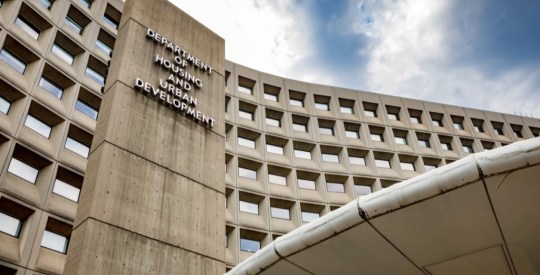So much for any fight over whether the Treasury should be allowed to purchase shares in troubled housing finance giants Fannie Mae (FNM) and Freddie Mac (FRE). Key Congressional Democrats gave their thumbs up late Monday to a Bush administration proposal that would grant the Treasury broad access to support both GSEs, and said they’d include it in an ever-expanding housing aid package now making its way through Congress. “The bill will include the proposals announced yesterday by Secretary Paulson to ensure that Fannie and Freddie have the resources they need to continue to play their vital role in America’s housing finance system,” House Financial Services Committee chairman Barney Frank (D-MA) said in a statement. Sources had suggested earlier that some Democrats might object to a Treasury proposal seeking to grant it temporary authority to purchase an equity interest in one or both GSEs, if needed; the administration’s proposal in this area effectively killed any stock rally Monday surrounding Fannie and Freddie over fears of potential serial dilution, as investors weighed the probability of any Treasury step-in. Whether any such investment by the Treasury will actually be needed is the question du jour among analysts and investors alike. We’re sure you can find your fair share of analysts suggesting that the need for capital is so great at both GSEs that the Treasury will undoubtedly step right in; but not all analysts are making that kind of call. A team of analysts led by Jim Vogel at FTN Financial suggested Monday that Freddie Mac could go at least four more quarters without needing outside capital, even with mounting losses, and dismissed recent comments by former St. Louis Fed president William Poole — who suggested last week that the GSE was insolvent — as “patently stupid analysis.” (Not that it stopped famed investor Jim Rogers, who holds an active short position in Freddie, from reiterating the same argument to Bloomberg on Monday morning.) Whispers of press leaks Treasury secretary Henry Paulson has been adamant thus far in suggesting that any aid to the GSEs not benefit shareholders, a stance he also struck in the bailout of troubled Wall Street outfit Bear Stearns & Co. in March. But some of HW’s sources suggested over the weekend that Congressional Democrats had resisted the idea, at least initially, on the grounds that shareholders had invested out the belief that both had the government’s support. Friday’s near-collapse of both the equity and debt markets for both GSEs, however, likely served to quickly removed any lingering policy differences — real or imagined — between Paulson and Congress, sources suggested. It’s been whispered as of late by more than one analyst that Paulson may have leaked the onerous suggestion that the government was considering conservatorship for Fannie and Freddie, as reported last week by the New York Times, in an effort to strong-arm Democrats into agreeing to the administration’s proposal. Technically speaking, conservatorship would be an issue only if the GSEs fell below well-defined critical capital levels, and neither is close to such a danger zone: taken together, Fannie and Freddie’s current capitalization is $50 billion above such a level. Freddie is also planning to raise an additional $5.5 billion in fresh capital later this year. “Many sources are wondering if the administration or Congressional Republicans didn’t deliberately bobble the public relations efforts to reassure the markets in the wake of concerns that new accounting rules would increase regulatory capital needs,” said one source, an ABS analyst that asked not to be named in this story, in reference to a Monday report from Lehman Brothers Holdings Inc. (LEH) that served to spark the spiral in share prices last week. “Notably, debt markets did not falter appreciably until news of Treasury contingency plans escalated fears from serial dilution of existing shareholder interests to fear of imminent collapse.” Intentional or not, the conservatorship report sent the GSEs and larger financial markets into a tailspin Friday, and have since put the Fed and the Treasury in the position of having to prove the thinking that says some institutions really are too big to fail — as if the bailout of Bear Stearns didn’t already prove such a mantra’s existence. In the case of the GSEs, however, the very act of stepping in creates a special kind of conundrum: in times of crisis, just what does it mean to have an implicit government guarantee? We’re about to find out. Disclosure: The author was long FRE and held no other positions of relevance when this story was originally published. HW reporters and writers follow a strict disclosure policy, the first in the mortgage trade.
Most Popular Articles
Latest Articles
New HUD rule aims to increase lender participation in tribal housing program
HUD says the new rule is designed to increase and streamline Native American borrowers’ access to homeownership.



